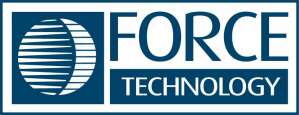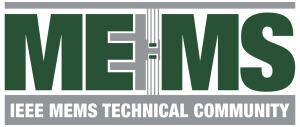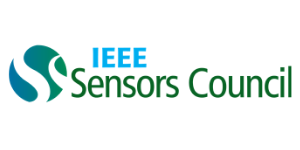Short Bio: John S. Ho is an assistant professor in the Department of Electrical and Computer Engineering at the National University of Singapore. He received his PhD in electrical engineering at Stanford University where he was a National Defense Science and Engineering Graduate Fellow. He is a recipient of the NRF Fellowship, NUS Young Investigator Award, and Young Scientist Award, and has appeared on the MIT TR35 Innovator Under 35 Asia and Forbes 30 Under 30 Asia lists. His research focuses on developing medical devices to monitor and intervene wherever and whenever medical conditions occur in the body.
Organizer Type: Track Chair
Rona Chandrawati is a Scientia Associate Professor and NHMRC Emerging Leadership Fellow in the School of Chemical Engineering at The University of New South Wales (UNSW Sydney). She obtained her PhD from The University of Melbourne in 2012 and was then a Marie Curie Fellow at Imperial College London before returning to Australia in 2015 to establish her research group as a Lecturer (2015 – 2017), Scientia Senior Lecturer (2018 – 2020), and Scientia Associate Professor (2021 – present). Rona was awarded the 2021 NSW Early Career Researcher of the Year (Physical Sciences). She was a finalist of the 2021 Eureka Prize for Outstanding Early Career Researcher and named in Australia’s Most Innovative Engineers 2020 by Engineers Australia. Rona is an Editor of Communications Materials. Her research group focuses on developing nanomaterials for sensors in food safety and health monitoring.
Hamida HALLIL, Ing. PhD, is an Assoc. Prof. in electrical engineering at the Bordeaux University and affiliated with IMS lab. (CNRS, UMR 5218) in France. Her current research interests include the design of innovative devices and sensors using electromagnetic and acoustic transduction modes for environmental and health applications. In 2018 for 2 years, she was assigned as Adjunct research scientist at School EEE NTU and CINTRA lab. (CNRS, UMI 3288) in Singapore and her work focuses on the development of 2D based acoustic and microwave devices. She is Fellow of the French National council of universities since 2015, Chair of IEEE Sensors Council France Chapter and of WiSe committee of the IEEE Sensors Council since 2021. She also serves on the organizing or technical committees of several conferences, including IEEE : SENSORS ‘19 & ‘21, DTIP, NMDC ‘17,‘18,’19, ‘20 and IEEE ICECS ’20, IEEE COINS ‘21.
Dr. Da Silva received the M.Sc. degree in electrical engineering from both Dresden University of Technology, Dresden, Germany, and the Federal University of Technology–Parana, Curitiba, Brazil, in 2003, and the Dr.-Ing. degree in electrical engineering from the Dresden University of Technology, in 2008.
He was a Research Associate with Helmholtz-Zentrum Dresden-Rossendorf, Dresden (Germany), from 2004 to 2009. In 2010, he joined the Federal University of Technology–Parana (Brazil), where he has been an Associate Professor since 2013. His current research interests include sensing technology, sensor data processing and instrumentation applied to process monitoring. Dr. Da Silva is Associate Editor-in-Chief of the IEEE Sensors Journal and is on the Editorial Board of Measurement Science and Technology.
Valérie Renaudin is a Professor at the University Gustave Eiffel. She obtained the Master’s degree in Geomatics Eng. in 1999, and the PhD in Computer, Communication, and Information Sciences at EPFL in 2009. She was Technical Director of Swissat, Samstagern, Switzerland, where she developed real-time positioning solutions based on a permanent global network of satellite navigation systems (GNSS), and Senior Research Associate of the PLAN group at the University of Calgary, Canada. She currently heads the Geopositioning Laboratory (GEOLOC) at the Gustave Eiffel University, Nantes in France, where she has built a team specializing in the positioning and navigation of travelers in multimodal transport. Her research focuses on indoor/outdoor navigation using GNSS, as well as inertial and magnetic data, especially for pedestrians to improve sustainable personal mobility. She is the topical editor of a special issue of the IEEE Sensors Journal and a member of the editorial boards of MDPI’s Sensors and Hindawi’s Journal of Sensors. She is also a member of the steering committee of the international conference “Indoor Positioning and Indoor Navigation”. Valérie Renaudin has received several awards including the Marie Curie European grant for the smartWALK project.
D. KOURTICHE received the Eng. degree in Electrical Engineering from University of Sciences and Technology, in 1985, and The Ph.D. degree from Lorraine University in 1991.
His research activities are carried out at the Jean Lamour Institute (IJL) where he is the deputy head of the N2EV department (Nanomaterials, Electronics and Living Systems)
He is currently Professor in Electronics and Instrumentation where he teaches Electronics and Instrumentation for both graduate and undergraduate levels at the Faculty of Sciences. His research interests focus on active implants immunity to electromagnetic fields, impedance spectroscopy, biosensors, and electronic instrumentation.
Theerawit Wilaiprasitporn received a Ph.D. degree in engineering from the Graduate School of Information Science and Engineering, Tokyo Institute of Technology, Tokyo, Japan, in 2017. Japan Society for the Promotion of Science (JSPS) funded his Ph.D. research. He is currently an assistant professor at the School of Information Science and Technology, Vidyasirimedhi Institute of Science and Technology, Rayong, Thailand, where he is also a co-principal investigator (co-PI) of the Bio-Inspired Robotics and Neural Engineering Laboratory. He had been PI of 10 external-funded projects. His current research interests are Biomedical Signal Processing, Brain-Computer Interfaces, and Artificial Intelligence in Healthcare. He has successfully published 20 IEEE Journal papers/Transactions within the first four years of his early career (2019-2021). Moreover, he is an associate editor of IEEE Sensors Journal and a track chair of IEEE SENSORS 2021-2022.
Dr. Hyejin Moon is Associate Professor and the director of Integrated Micro and Nanofluidics laboratory (IMNfL) of Mechanical and Aerospace Engineering Department at University of Texas at Arlington (UTA). She received her Ph.D. from Mechanical Engineering at University of California, Los Angeles (UCLA) in 2005, followed by Postdoctoral research experience at School of Dentistry and School of Engineering at UCLA for 1.5 years. Her research interest includes interfacial science, surface phenomena, electrohydrodynamics, microfluidics, micro total analysis systems (μTAS), bioMEMS/NEMS, microscale heat transfer and energy harvesting. Her research has been funded by National Science Foundation (NSF), Defense Advanced Research Projects Agency (DARPA), National Institute of Health (NIH) and Bill and Melinda Gates Foundation.
Dr. Han is a Professor of the Department of Electrical and Computer Engineering, and the Chancellor’s EDGES Fellow and Presidential Impact Fellow of the Texas A&M University. He also holds joint appointment in the Department of Biomedical Engineering, is a Graduate Faculty of the Texas A&M Health Science Center, Faculty of the Texas A&M Institute for Neuroscience, and Faculty of Toxicology. His research focuses on development of microfluidic, lab-on-a-chip, and organ-on-a-chip systems that enable unique biological experiments at high throughput and high accuracy. He has pioneered the area of high-throughput microfluidics for microbiology applications. Developing high-throughput technologies that enable complex multi-step biological assays involving mammalian cells, microorganisms, and viruses are also some of his key accomplishments. He has also pioneered the area of organ-on-a-chip systems for feto-maternal interface and preterm birth research. He currently serves as the Editor-in-Chief for the journal Biomedical Microdevices.
Received the Ph.D. degree in electrical engineering from UTI, Iasi and the Habilitation degree from the University of Lisbon. He is currently a Professor at Iscte–IUL and a Senior Researcher with the Instituto de Telecomunicacoes. He has authored and coauthored ten patents, ten books, 18 book chapters, more than 400 papers in international journals and proceedings of international conferences with peer-to-peer review. His fields of interests are smart sensors and IoT for biomedical, environmental and precision agriculture applications, intelligent transportation, wireless sensor networks and visual senor networks, and artificial intelligence applied automated measurement systems. He is active on IEEE organization, where he serve as the Chair for IEEE IMS-TC13 and IEEE IMS Portugal chapter.



















